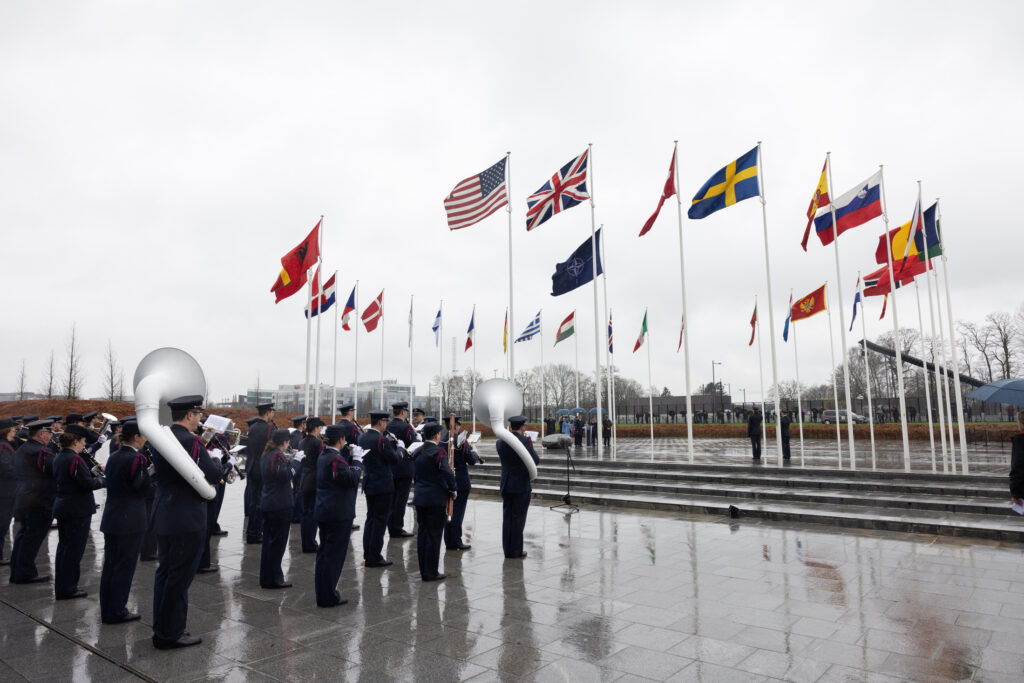
A column by Mats Hellström, Chairman of Norden International, Sweden’s former Minister of Foreign Trade, European and Nordic Affairs, and Sweden’s former Minister of Agriculture.
The entry of Sweden and Finland into NATO open up new windows for Nordic cooperation. Security policy has limited us. Tage Erlander’s attempt to create a Nordic defense alliance failed. Instead, the North Atlantic Treaty, became an alternative for several Nordic countries.
Five different security policy solutions took form in the Nordics. Iceland has no own military defense but was supported by NATO through an American military base until 2006. Denmark and Norway became NATO members. Both countries have made exceptions for nuclear weapons on their territories, but it is formulated slightly different. Denmark’s exception has been considered justified by the country’s previous proximity to West Germany. In Sweden, the parliament decided on our policy of non-alignment and neutrality. The formula of non-alignment in peace aimed for neutrality in war applied until 1992, when the neutrality in the event of war in our vicinity was relativized. Finland has regarded itself as a neutral country, but the meaning of neutrality was commented in the friendship pact with the Soviet Union (the YYA treaty), which was abolished in 1992.
The five Nordic countries, often perceived from the outside as having a common Nordic culture and social cohesion, have thus been significantly divided in security policy. This obviously underscores that we have lived in a potential high-tension area between the Warsaw Pact and the North Atlantic Treaty, where we have sought to compensate for this with cooperation and cohesion in many other areas of society. During the 2000s, efforts have also been made to compensate for the ”deficit” in security policy, primarily through Swedish and Finnish defense cooperation.
Now, with the entire Nordic region in the same defense alliance, it is crucial to quickly exploit the new opportunities for joint defense planning, which could raise the threshold for military conflicts in the Baltic Sea area and the Arctic – with a threatening Russia.
In Sweden, there is a myth about our possibilities to participate in peace-making efforts and international mediation between countries in conflict areas that would be hampered by NATO membership. There is nothing in the real environment that supports such a claim. NATO country Norway has had several mediation assignments in recent years than we have. It is other constellations than belonging to a defense alliance that determine whether international mediation will be successful.
We can also continue to work for detente and counter the spread of nuclear weapons. In these contexts, Nordic initiatives can have significance.
A prerequisite, however, is that the government office at several levels strengthens its resources at home and internationally for mediation efforts and peace promotion.
In that case, the Nordics could gain significance and impact also in terms of security and détente – beyond what we are now most known for – innovation ability and social cohesion.
The NATO membership of all Nordic countries obviously means something new in security policy – not only through the military commitments. Where we in the Nordics have thus chosen different solutions, we now have a common platform that is possible to utilize.
Now we must tackle other Nordic issues of security policy nature, beyond the military dimension, which are significant for civil society and the business sector. This can involve practical and essential neighborly issues such as border crossings by road, rail, and air.
Nordic joint cultural activities and artistry create a bond and have origins in many sources far outside of security policy. In youth music, something completely new is created together with established music forms as in the Orchestra Nordica.
The new security order in the Nordics presents many obvious challenges and new opportunities for Nordic cooperation and not least for the Nordic Council of Ministers to become involved in and take responsibility for!
